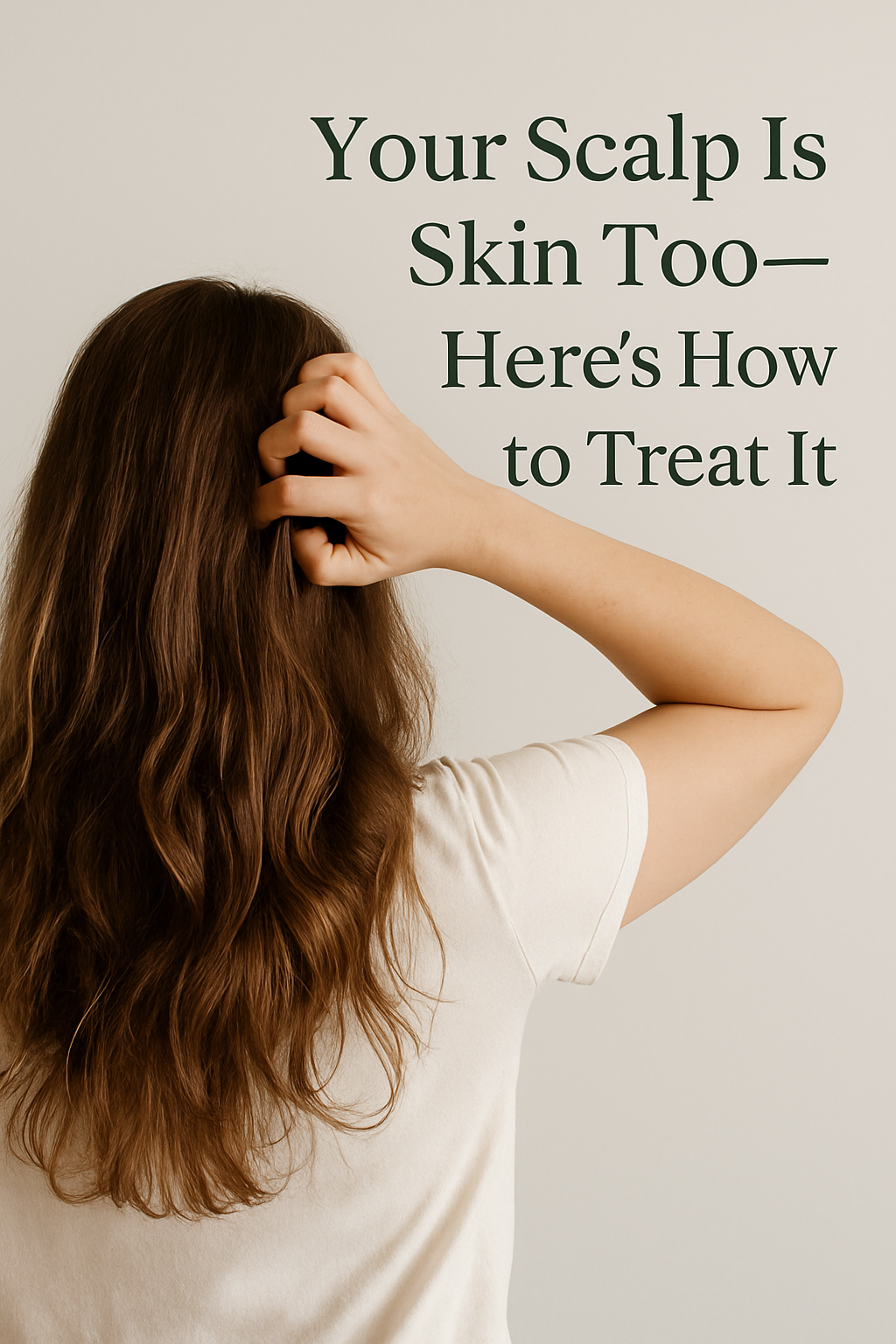
Your Scalp is Skin Too! Here’s How to Treat It
Share
If you’ve been dealing with an itchy, flaky scalp, it can feel confusing and frustrating. You try expensive shampoos, you follow all the instructions, and still—no relief.
Here’s the part most people forget: your scalp is skin too. And just like the skin on your face or body, it can become irritated, dry, or overwhelmed when it’s not treated gently.
The Hidden Shampoo Habit
In my Melbourne studio, I’ve noticed a simple pattern. Most of us apply shampoo the same way, every time—plopping it straight onto the crown of the head and scrubbing away.
At first, it feels fine. But over time, it’s like a dripping tap on concrete. One drop won’t hurt, but years of hitting the same spot can wear it down.
Combine that with shampoos full of fragrance, sulfates, and petrochemicals, and your scalp starts to feel raw, itchy, and tired.
A Gentle Reset
If this sounds like you, here’s where I invite my clients to start:
Take it back to basics. Choose a sulfate-free, gentle shampoo. Nothing heavy, nothing perfumed. Think of it as skincare for your scalp.
Change the way you wash. Rub shampoo between your hands first, then spread it evenly. You’re cleansing, not scrubbing. Shampoo twice — once to remove dirt, and once to truly clean the hair. Start with about a 20c coin amount. Try not to wash every day (I know this is hard for gym junkies and finer hair clients — we love a freshly washed vibe).
Condition with care. Conditioner belongs on the ends of your hair, not the scalp.
Soothe and heal. For some clients, a light mist of aloe vera on the scalp feels like cooling a burn. It’s simple, natural, and helps skin calm down.
Dry it well. Don’t leave your hair or scalp damp all the time. Bacteria love warm, wet environments. A gentle dry makes all the difference.
Clean your tools. Hairbrushes collect oil, product, and bacteria. If you’re brushing a clean scalp with a dirty brush, you’re undoing your hard work. Wash your brushes regularly — your scalp will thank you.
Why aloe vera helps:
-
Soothes inflammation → Aloe vera contains natural compounds that calm redness and itching (that’s why it’s used on burns).
-
Light antimicrobial action → It can help reduce bacteria and yeast on the scalp, though it’s not a replacement for medicated treatments.
-
Hydrates + supports healing → Rich in water, natural sugars, and antioxidants (vitamins A, C, and E), aloe helps your scalp hold onto moisture and repair itself.
Just remember, though: Aloe vera works like a cool drink of water for irritated skin to help promote healing. It won’t cure dandruff or psoriasis, but for dry, itchy scalp it can bring relief while you reset your routine. like with anything natural, some people can be sensitive to it. If you’ve never used it before, always patch test first — especially if your scalp is already sore or broken. Better safe than sorry.”
Why This Matters
Your scalp is the soil your hair grows from. If the soil is depleted, the hair suffers. It gets weaker, thinner, more prone to breakage. But when you treat your scalp as carefully as you do your face or your body, your hair thanks you for it.
This is why I created Serene Haircare: clean, organic products designed not just to style or gloss over issues, but to support the health of your hair and your scalp.
A Final Note
If you’ve stripped things back, given your scalp a gentle reset, and it’s still itchy or flaky after a couple of weeks, that’s your sign to see a doctor, chemist, or trichologist. Because sometimes what looks like dryness is actually dandruff or psoriasis, and that deserves professional care.
But for most people? The smallest shift in how you wash can bring the biggest relief. Your scalp isn’t separate from you. It’s skin. And it deserves to be treated with care.
